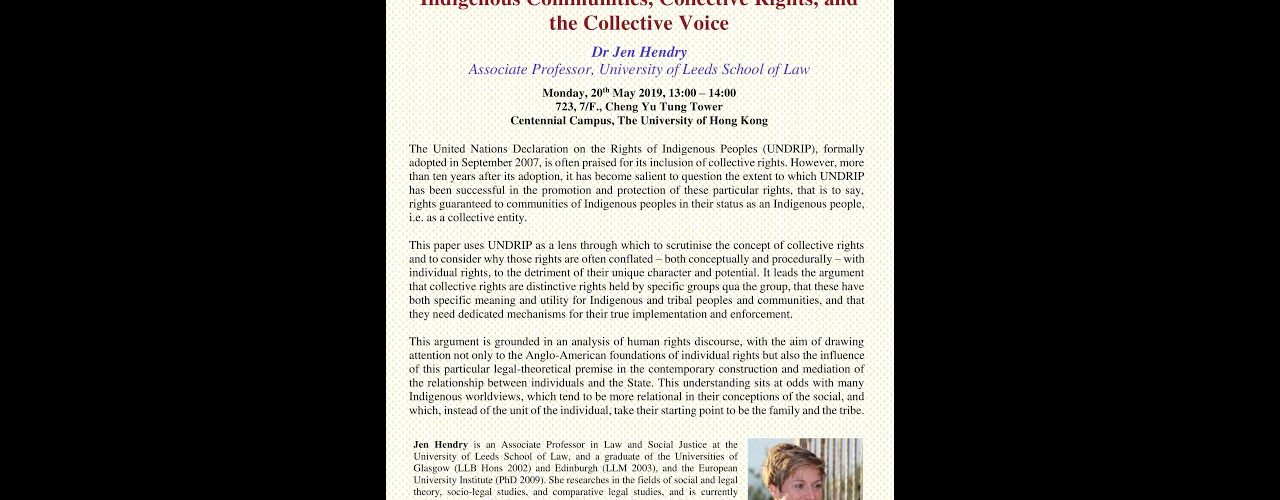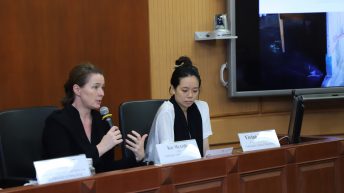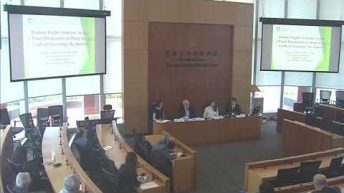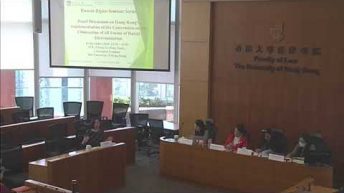Date: 20May 2019
Human Rights Seminar Series – Indigenous Communities, Collective Rights, and the Collective Voice by Dr Jen Hendry (Associate Professor, University of Leeds School of Law)
The United Nations Declaration on the Rights of Indigenous Peoples (UNDRIP), formally adopted in September 2007, is often praised for its inclusion of collective rights. However, more than ten years after its adoption, it has become salient to question the extent to which UNDRIP has been successful in the promotion and protection of these particular rights, that is to say, rights guaranteed to communities of Indigenous peoples in their status as an Indigenous people, i.e. as a collective entity.
This paper uses UNDRIP as a lens through which to scrutinise the concept of collective rights and to consider why those rights are often conflated – both conceptually and procedurally – with individual rights, to the detriment of their unique character and potential. It leads the argument that collective rights are distinctive rights held by specific groups qua the group, that these have both specific meaning and utility for Indigenous and tribal peoples and communities, and that they need dedicated mechanisms for their true implementation and enforcement.
This argument is grounded in an analysis of human rights discourse, with the aim of drawing attention not only to the Anglo-American foundations of individual rights but also the influence of this particular legal-theoretical premise in the contemporary construction and mediation of the relationship between individuals and the State. This understanding sits at odds with many Indigenous worldviews, which tend to be more relational in their conceptions of the social, and which, instead of the unit of the individual, take their starting point to be the family and the tribe.
Jen Hendry is an Associate Professor in Law and Social Justice at the University of Leeds School of Law, and a graduate of the Universities of Glasgow (LLB Hons 2002) and Edinburgh (LLM 2003), and the European University Institute (PhD 2009). She researches in the fields of social and legal theory, socio-legal studies, and comparative legal studies, and is currently writing on issues of indigenous justice and legal pluralism. Jen is Director of the School’s Centre for Law and Social Justice and member of the ESRC peer review college.




